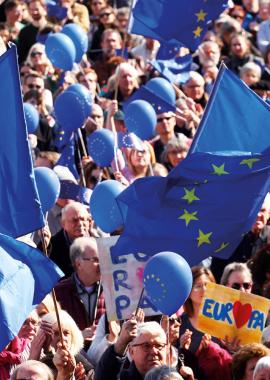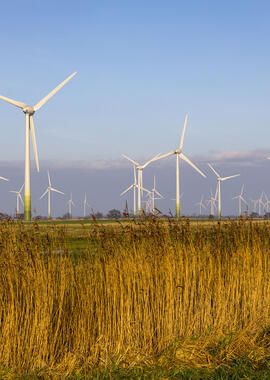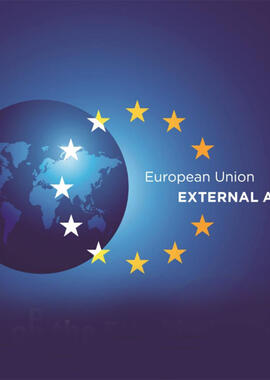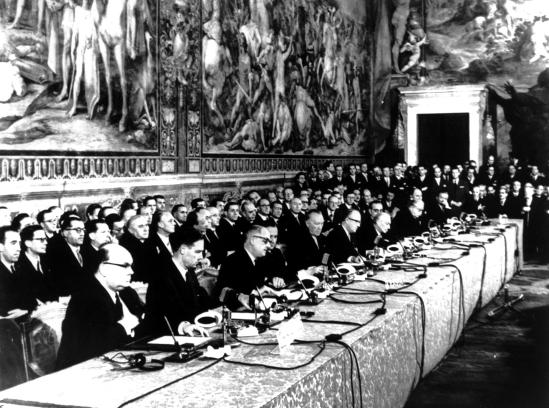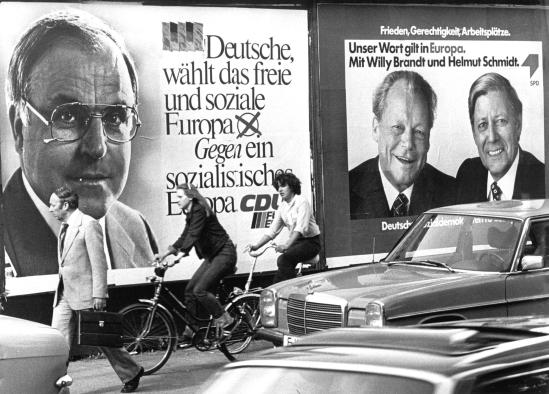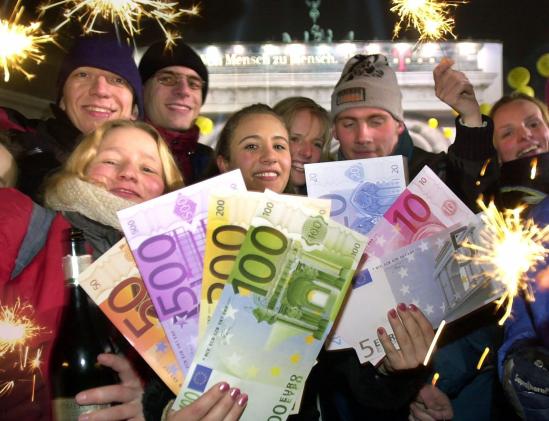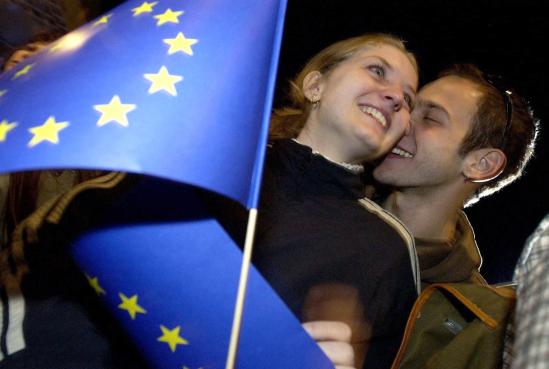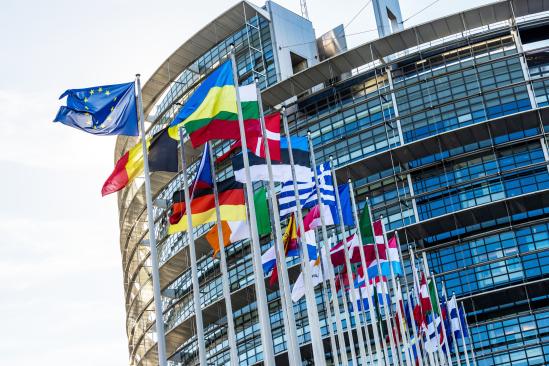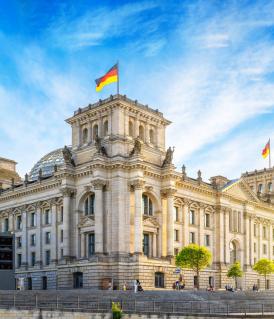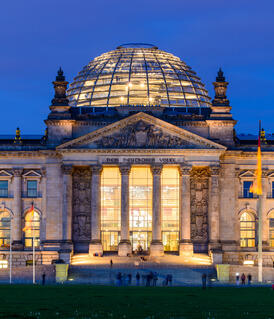Germany and Europe
Germany is one of the founding members of the European Union. Today it works to strengthen and develop the EU as a guarantor of peace, security and prosperity.
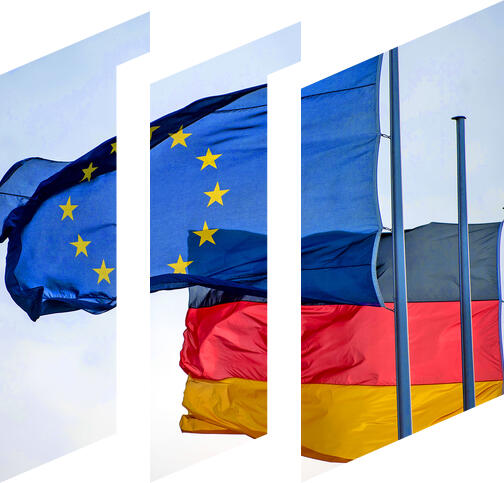
Insights
Germany – Strong Partner in the EU
The cohesion of the European Union forms the basis for the Member States’ peace, security and prosperity. As one of the founding EU Member States, Germany actively advocates “more Europe”.
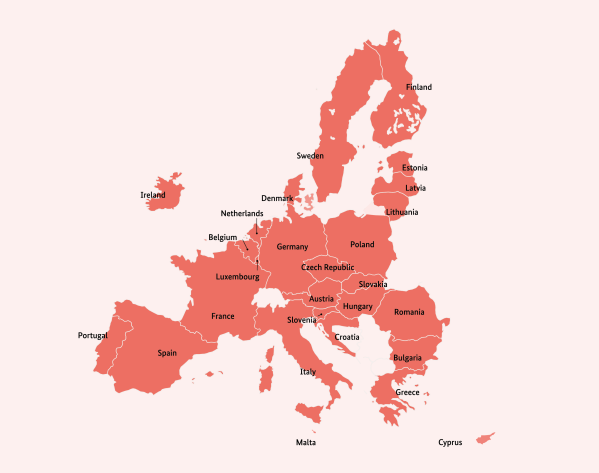
Map of Europe
The five EU countries with the most inhabitants
m. (Source: Destatis/Eurostat)
Inhabitants
| Germany | Off | germany | 83 |
| France | Off | france | 68 |
| Italy | Off | italy | 59 |
| Spain | Off | spain | 48 |
| Poland | Off | poland | 37 |
The four biggest countries in the EU
km² (Source: Eurostat)
Biggest countries
| France | Off | france | 633186 |
| Spain | Off | spain | 505944 |
| Sweden | Off | sweden | 438574 |
| Germany | Off | germany | 357588 |
The five largest economies in the EU
Gross domestic product in billion EUR (Source: Eurostat, 2023)
Economies
| Germany | Off | germany | 4122 |
| France | Off | france | 2803 |
| Italy | Off | italy | 2085 |
| Spain | Off | spain | 1462 |
| Netherlands | Off | netherlands | 1034 |
Germany’s five most important trading partners in the EU
Trade volume in billion EUR (Source: DIHK/Destatis, 2023)
Trading partners
| France | Off | france | 186 |
| Netherlands | Off | netherlands | 215 |
| Italy | Off | italy | 156 |
| Austria | Off | austria | 133 |
| Poland | Off | poland | 170 |
Facts and figures
© dpa
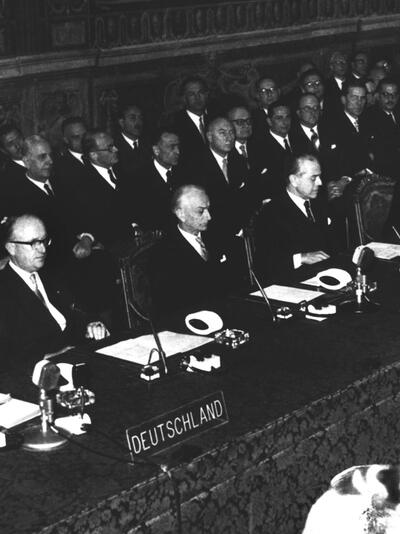
EU founding member in 1957
Germany was one of the six founding-states of the then EEC.
Climate-neutral Europe by 2050
The EU’s Fit for 55 package is the largest package of climate protection legislation that has been put together anywhere in the world.
© dpa
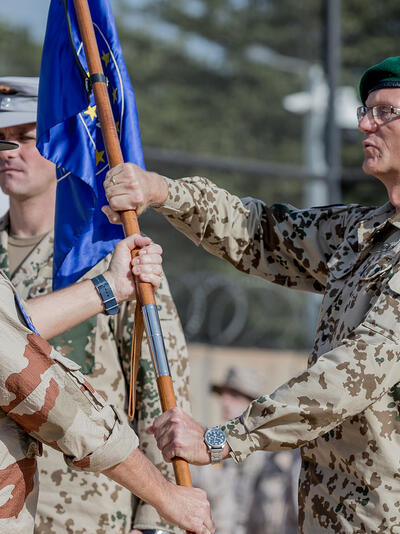
More than 30 EU missions
As part of the Common Security and Defence Policy, the EU has deployed more than 30 civilian and military missions since 2003.
95,5 billion euros
These funds have been allocated to the EU’s Horizon Europe research and innovation programme.
Timeline
Europe
The most important steps along the path to a united Europe and other significant stages of the partnership.
